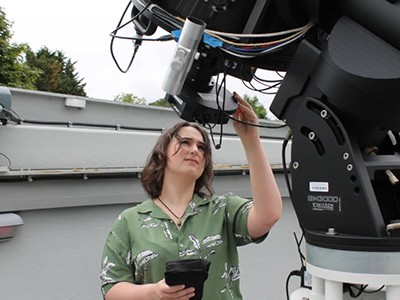Starting a PhD can feel like stepping into uncharted territory. Although universities offer orientation programmes and supervisors provide research guidance, some of the most valuable lessons come from those who’ve walked the path before.
Nature’s 2025 PhD survey asked doctoral candidates worldwide what advice they would give to someone considering a similar degree (see ‘Recommendations to my pre-PhD self’). Many responses gave advice on what to consider when choosing a supervisor, research topic and laboratory, and the importance of scrutinizing personal motivations for doing a PhD. These quotes are taken from survey answers and have been anonymized, although they include the author’s gender, nationality, location and study year.
Find the right supervisor and lab
The people you work with matter as much as the project you choose.
“Choose your supervisor(s) very carefully. I’ve seen way too many students bullied, harassed and kicked out of the programme with their confidence in pieces.” — Female fourth-year student in South Africa
“When interviewing for a PhD slot, pay attention to how your prospective adviser treats others in the lab and the department. My lab ended up being really cliquey with certain individuals being excluded because my adviser plays favourites.” — Female fifth-year student in the United States
How money, politics and technology are redefining the PhD experience
“Do not go directly from an undergraduate degree to a PhD. Work for a year if possible in a job that will give you a better understanding of the problems you want to solve. That way your research can have the largest impact.” — Canadian female first-year student based in the United Kingdom
“The culture of the institution matters more than almost anything else. Listen to your gut when you feel like a university or lab culture is not a good fit.” — Female second-year student in the United States
“Take the opportunity, if it’s offered, to rotate through a few labs. You might be surprised by which lab you wind up feeling drawn to — I joined a lab that wasn’t initially on my radar.” — Female third-year student in the United States
Define your purpose
A PhD is a long commitment. Know your reasons for doing one and take steps to protect your well-being.
“Getting a PhD is a labour of love. Take the time to know that this is really what you want to pursue and if it is, then make sure you balance your mental health throughout the process. Burnout is much easier to avoid than to try to recover from.” — Female second-year student in the United States
Class of 2025: five PhD students reveal realigned priorities in wake of COVID and cuts
“Be vocal about what you want, nobody will stand up for you and give you what you want. Only you can focus on you, and that means getting a hold of what you want to progress your career.” — Indian female fifth-year student based in the United States
“Think about what you will do after your PhD from the very beginning. Create your own path with your own decisions, create your own burning torch for lighting your way. Because it can be a bit dark here.” — Female fourth-year student in Turkey
“Don’t let guilt run your PhD. Do your work during work hours and give yourself permission to disconnect afterward. Take your vacations without shame. No one finishes everything they plan.” — Female fifth-year student in Croatia
“If you feel like you’re not doing something you really love and truly believe in, abandon it. Trust your intuition. If you’re on the wrong train, it’s better to realize it as fast as possible.” — Female seventh-year student in Poland
Shape your project and skills
Choosing a topic is just the start. Your success depends on curiosity, persistence and building transferable skills along the way.
“Make sure you’re deeply interested in the process, not just the outcome. If you genuinely enjoy learning, problem-solving and digging deep into questions no one has fully answered before, that passion will carry you through the tough parts.” — Male second-year student in Brazil
11 reasons why we’ve stayed in academia
“Own your tasks … don’t get too bogged down with the details, but see how your research develops from a bigger picture perspective. Celebrate small wins: finishing an abstract for a conference, completing literature review for a specific objective and so forth.” — Kenyan male third-year student based in Germany
“Take every opportunity to learn how to write. Doing a PhD is an investment in your future, and the most transferable skill I have learnt is being able to communicate effectively through writing.” — Male fourth-year student in Canada
“Do not depend on AI tools to do the critical work of reading, understanding and writing. You need to analyse the results and not allow AI to do it as it might give biased outputs.” — Female fifth-year student in India
“Try to clearly define your personal workload limits. This will help you plan more effectively and avoid becoming overwhelmed by too many responsibilities or side projects.” — Female fourth-year student in Brazil
Clear the hurdles
Learn how to handle lab politics, heavy workloads and cultural or institutional obstacles.
“You will encounter more difficult challenges on this road than in your past student career, which might be in your academic work or, more likely, interpersonal relationships. The academic community is no more harmless or innocent than the outside world.” — Transgender male fifth-year student in Taiwan




